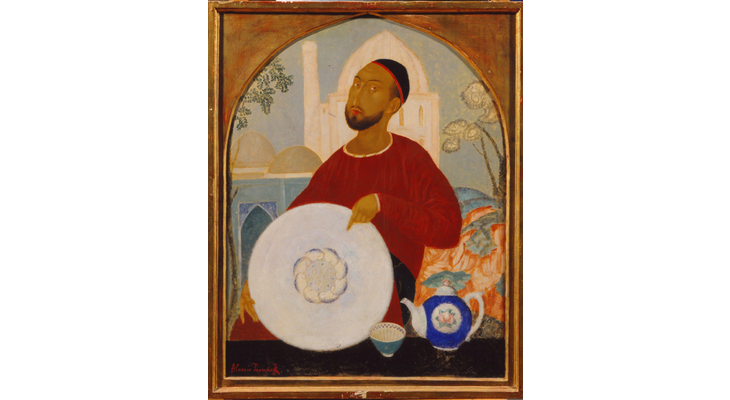Tomorrow, the festival "Russian Emigration: Cities and Faces" will open in Kirov. One of its key figures will be Vyatka-born artist Alexei Isupov.
Alexei Isupov (March 10, 1889 – July 17, 1957) was born into a family of icon painters and showed an early interest in art. In 1908, he entered the Moscow School of Painting, Sculpture, and Architecture, where his teachers included Abram Arkhipov, Apollinary Vasnetsov, Konstantin Korovin, and Valentin Serov. Even during his studies, he participated in exhibitions of the Peredvizhniki and the Union of Russian Artists, with his works displayed at the Imperial Academy of Arts.
In 1915, he first arrived in Tashkent due to military mobilization. In 1918, Isupov returned there, and in 1920, he was assigned to Samarkand. The Uzbek period, which lasted until 1921, became one of the key phases in his creative journey: he embraced the Eastern style, painting landscapes and genre scenes.
After returning to Moscow, Isupov continued to actively participate in exhibitions, painting portraits of political figures and works on the theme of the revolution. In 1926, the artist left his homeland permanently due to illness—bone tuberculosis. The Isupov family moved to Italy, where the artist threw himself into his work. In Italy, Isupov's exhibition met with great success, and he was recognized by prominent Italian masters. Subsequently, his works were exhibited almost annually in Italy, France, the Netherlands, and Belgium.
While living abroad, Isupov maintained connections with Russia: he communicated with the Soviet ambassador in Rome, Soviet artists, and sculptors. During World War II, he donated funds to Soviet partisans and hosted meetings of the Italian Resistance Movement in his studio. After the war, two more personal exhibitions of Alexei Isupov were held in Italy—the last during his lifetime. The artist died and was buried in Rome. According to his will, about 300 of his works were transferred to Russia, with most of them housed in the Vyatka Art Museum, which Isupov helped to found.









